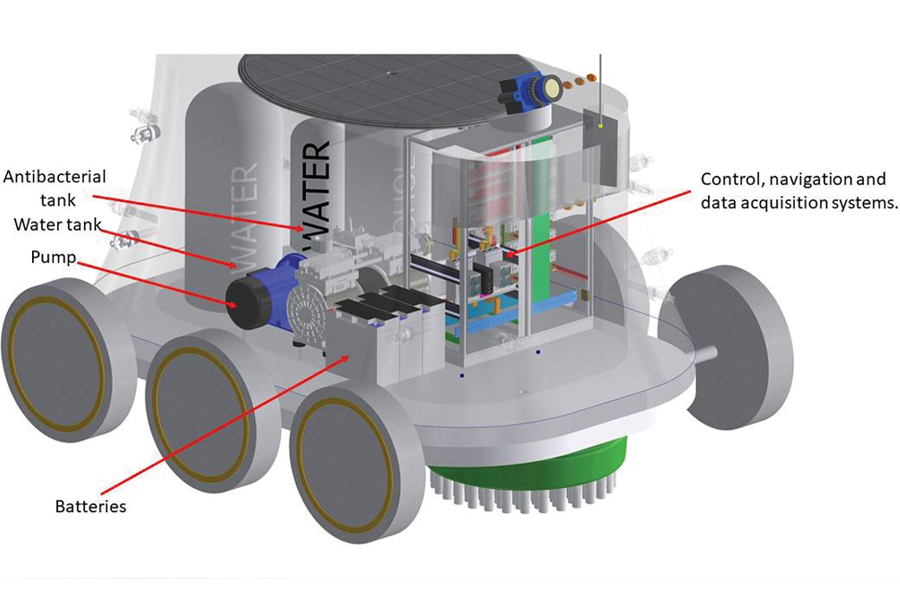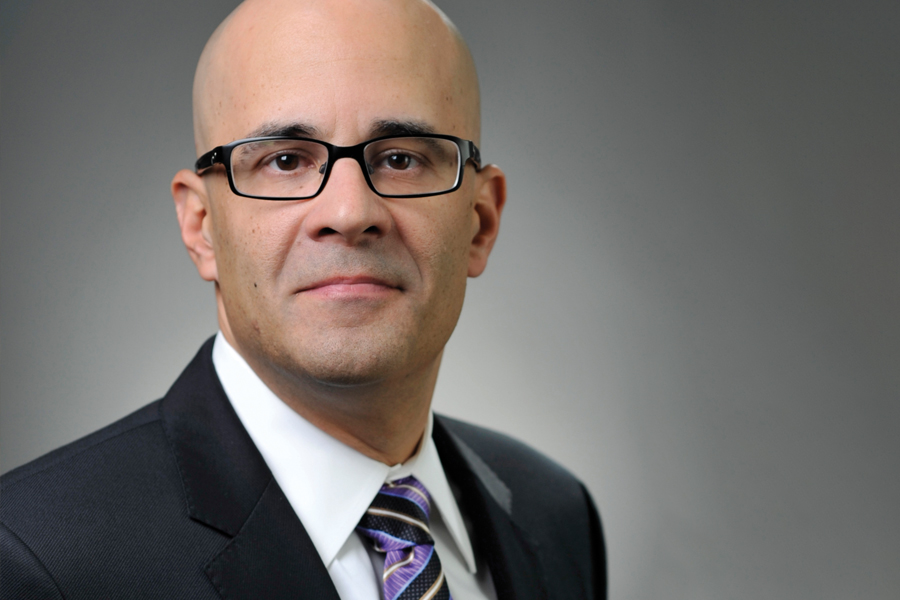
3D renderings of the disinfection robots, which will be equipped with sensors to measure things like temperature and humidity to identify potential coronavirus hot spots.
Image provided
Generous financial and entrepreneurial support from Intel and from College of Engineering alumni is powering a College-led initiative to develop and bring to market robotic and related technologies to reduce the spread of COVID-19 and potentially other diseases.
“Intel’s investment of nearly $200,000 and in-kind assistance from Purdue Engineering alumni have made it possible for us to assemble diverse talent and quickly progress toward introducing novel solutions to address the current pandemic and future health crises,” says Luciano Castillo, the Kenninger Professor of Renewable Energy and Power Systems in Mechanical Engineering, who is leading the multi-institutional effort.
“Through a Vertically Integrated Projects (VIP) course, in its third semester, we’re working to commercialize autonomous robots that can detect targeted pathogens in seconds and disinfect hospitals and campuses noninvasively, mitigating the risk to humans. Our initiative is advancing rapidly, as we engage with industry and alumni, collaborate with multiple universities, and bring new ways of learning to students across various disciplines and grade levels.”
To date, two robots have been built, in collaboration with the Indiana Manufacturing Institute; related disinfection systems and other products have been developed; and these technologies are being tested in COVID-19 Purdue quarantine rooms and classrooms. Six patent applications have been filed, and commercialization opportunities, including formation of two new startups (in the College of Engineering and the Purdue Polytechnic Institute), are being pursued.

An inside look at some of the technology that’s planned to run the autonomous disinfecting robots.
Image provided
Intel and other entrepreneurial support
Rick Echevarria (BSIE ’88), vice president and general manager of the Intel Response Technology Initiative and an active Purdue Engineering supporter, has spearheaded the Intel funding and is facilitating connections with other resources.
“The new technologies that Purdue has developed hold important promise in the global fight to quell the spread of COVID-19, as well as potential to combat future pandemics,” Echevarria says. “We are excited to be collaborating with Purdue to help accelerate the transfer of its innovations from the lab to the market.”
Another alumnus instrumental in moving the Purdue robotics work forward is Steve VonderHaar (BSEE ’81), chairman, mentor and coach of the Silicon Valley Boilermaker Innovation Group (SVBIG). He is helping the Purdue Engineering team develop commercial opportunities, including establishing a startup to manufacture and sell Purdue-developed technologies. Richard Voyles (BSEE ’84), the Daniel C. Lewis Professor at Purdue Polytechnic, head of the Collaborative Robotics Lab at Purdue, and director of the Robotics Accelerator, created the VIP course with Castillo and is teaching it in Spring 2021.
The VIP course benefits undergraduate and graduate students from Purdue and five other universities: New York Institute of Technology, Rensselaer Polytechnic Institute, University of Illinois at Urbana-Champaign, Universidad Nacional Autónoma de Mexico (UNAM), and Tsinghua University in China. High school students in Mexico and in Fort Wayne, Indiana, also participate, and a Purdue Engineering senior design team and Castillo’s lab group contribute.

Luciano Castillo, the Kenninger Professor of Renewable Energy and Power Systems in Mechanical Engineering
Photo provided

Rick Echevarria (BSIE ’88), Vice President and General Manager of the Intel Response Technology Initiative
Photo provided
